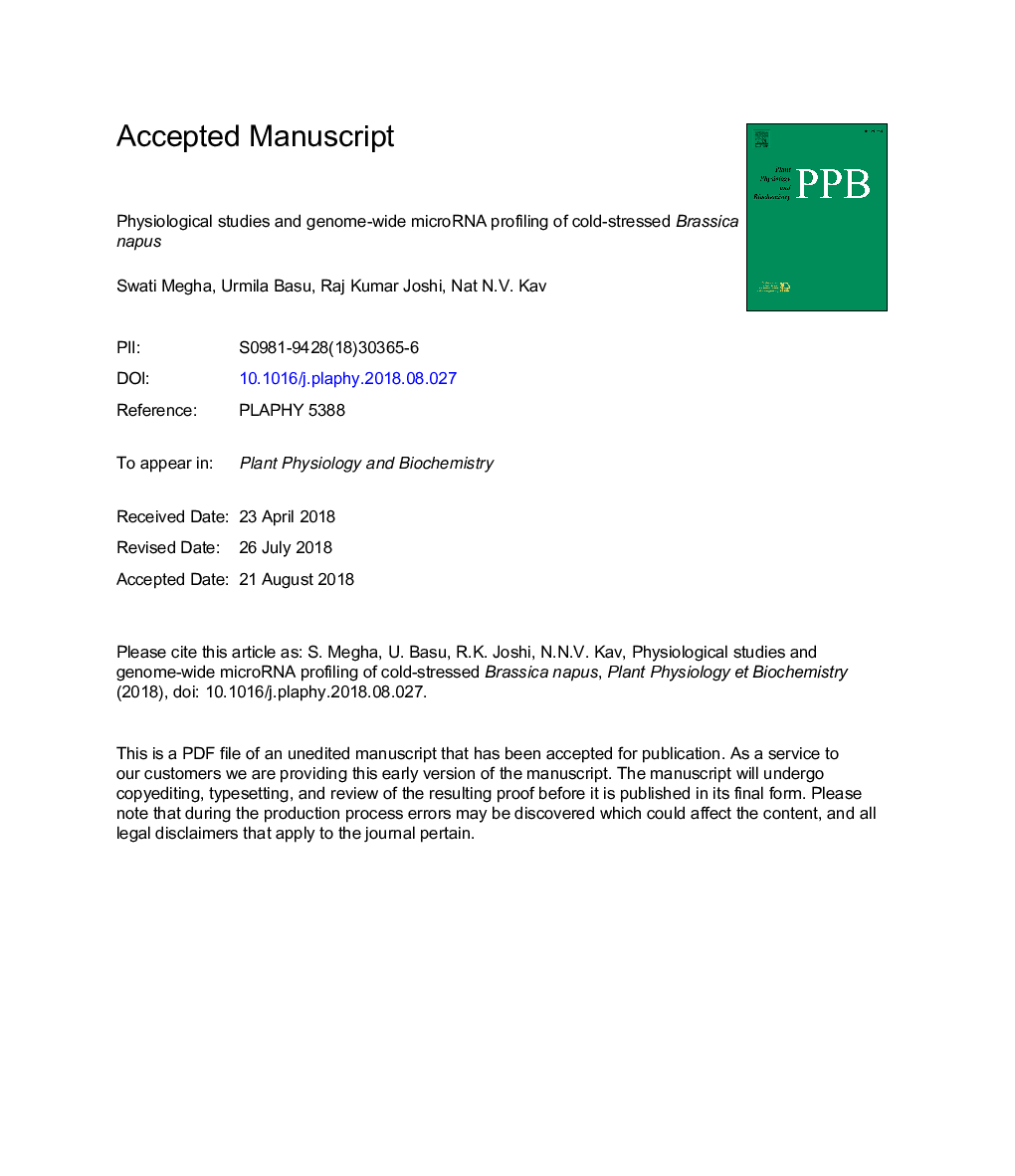| Article ID | Journal | Published Year | Pages | File Type |
|---|---|---|---|---|
| 8956046 | Plant Physiology and Biochemistry | 2018 | 54 Pages |
Abstract
Temperature extremes, including cold, adversely impact plant growth and development. Plant responses to cold stress (CS) are regulated at both transcriptional and post-transcriptional levels. MicroRNAs (miRNAs), small non-coding RNAs, are known to be involved in post-transcriptional regulation of various developmental processes and metal stress in Brassica napus L. (canola), however, their role in response to CS is largely unknown. In this study, changes in various physiological parameters and endogenous abundance of miRNAs were characterized in spring canola seedlings (DH12075) exposed to 4â¯Â°C for 0-48â¯h. Cold stress induced electrolyte leakage, increased the levels of malondialdheyde and antioxidant enzymes and reduced photosynthetic efficiency. Using small RNA sequencing, 70 known and 126 novel miRNAs were identified in CS leaf tissues and among these, 25 known and 104 novel miRNAs were differentially expressed. Quantitative real-time (qRT) PCR analysis of eight selected miRNAs confirmed their CS responsiveness. Furthermore, the expression of six out of eight miRNAs exhibited an opposite trend in a winter variety of canola, 'Mendel', when compared to 'DH12075'. This first study on the B. napus miRNAome provides a framework for further functional analysis of these miRNAs and their targets in response to CS which may contribute towards the future development of cold resilient crops.
Related Topics
Life Sciences
Agricultural and Biological Sciences
Plant Science
Authors
Swati Megha, Urmila Basu, Raj Kumar Joshi, Nat N.V. Kav,
